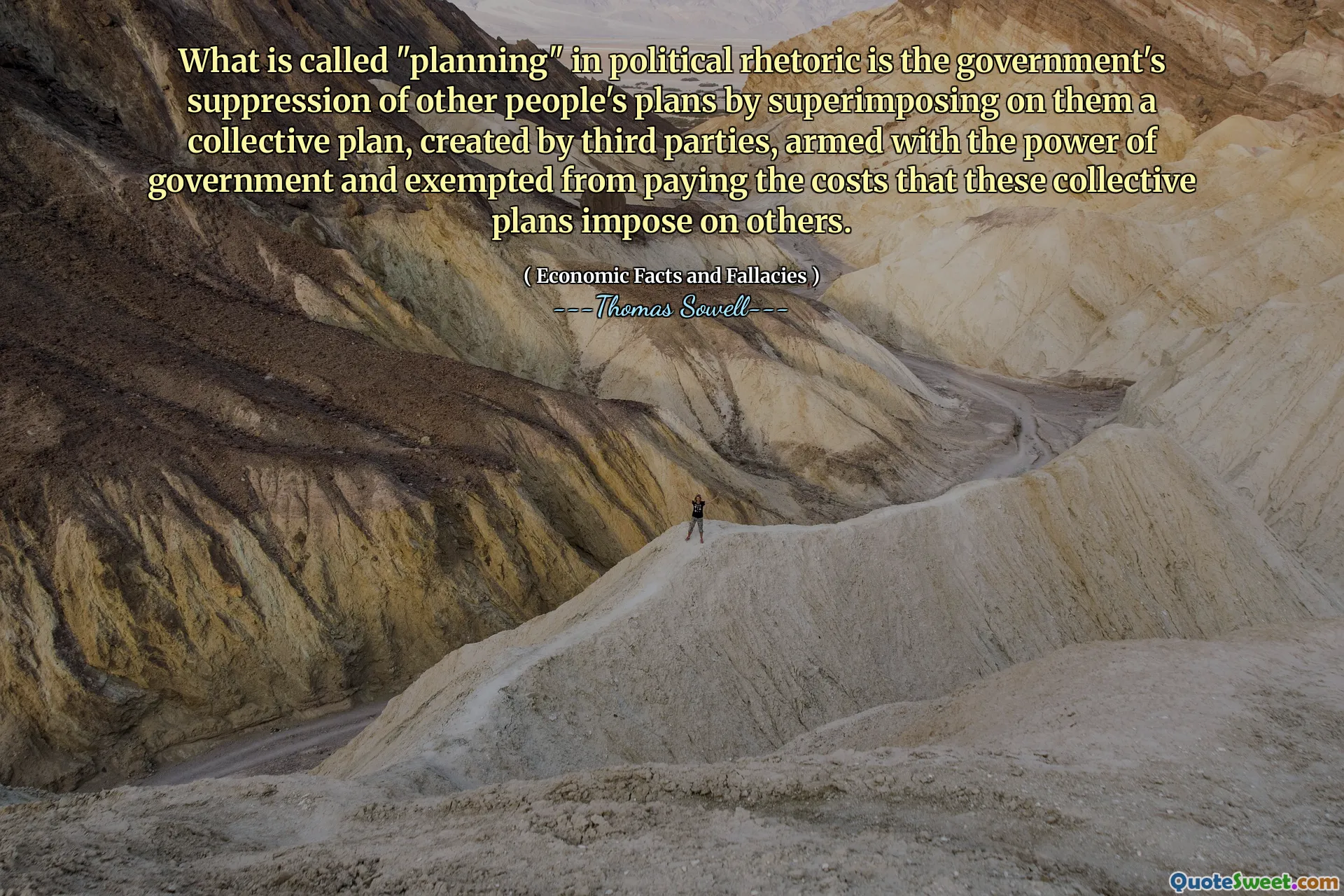
What is called "planning" in political rhetoric is the government's suppression of other people's plans by superimposing on them a collective plan, created by third parties, armed with the power of government and exempted from paying the costs that these collective plans impose on others.
[Markdown format]
This quote offers a critical perspective on the concept of "planning" often discussed in political discourse. It suggests that what is frequently labeled as "planning" by governments or political entities is, in essence, a form of suppression. Instead of allowing individuals or private entities to pursue their own plans, the government imposes a collective plan—crafted by third parties—that may benefit some at the expense of others. The phrase "armed with the power of government" highlights the authority and coercive power behind such plans, which can lead to overreach and unintended consequences.
Such a viewpoint challenges the traditional justification for government intervention, portraying it as more than just a facilitator of public welfare, but as an entity that can inadvertently stifle innovation, entrepreneurship, and personal freedoms. When the costs of these collective plans are not borne by those who benefit from them, it arguably fosters a sense of unfairness and reduces individual accountability. As Sowell implies, this dynamic can create a system where the burdens of social engineering fall on a few while many enjoy advantages without proportionate contributions.
In a broader context, this quote invites reflection on the balance between collective action and individual initiative. It underscores the importance of transparency, accountability, and the recognition of unseen costs inherent in large-scale government interventions. Excessive or ill-conceived planning can diminish personal incentives and lead to a dependency on government, which might undermine the very freedom and innovation that often lead to societal progress. Recognizing these dynamics allows for more nuanced debate about when government intervention is truly beneficial and when it may inadvertently do more harm than good.
(Economic Facts and Fallacies) — Thomas Sowell






